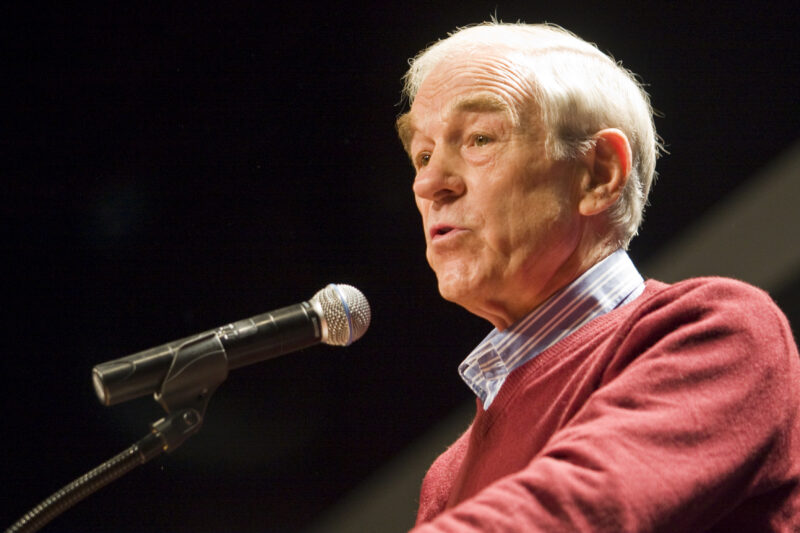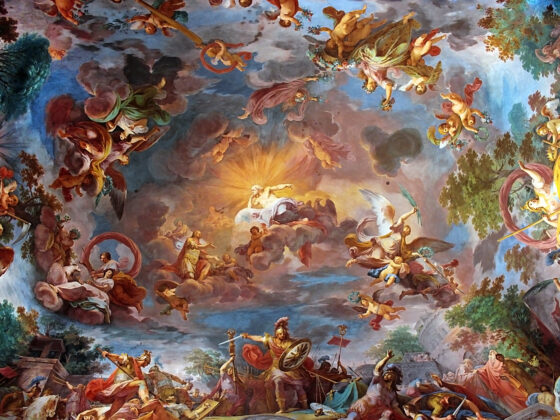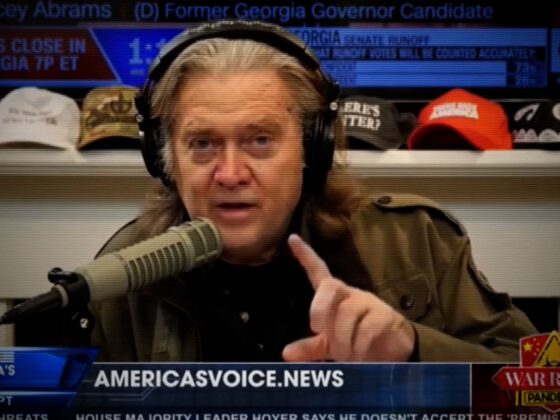By: Gary D. Barnett
“If anarchists are idealists, they may simply be likened to someone who finds himself swimming in a cesspool and, rather than paddling about looking for the area with the least amount of floating faeces, seeks to climb out of the pool completely.” ~ Robert Higgs
I must preface my remarks by saying that this essay is in no way whatsoever an attempt to discredit ‘libertarianism’ per se, nor is it meant to be critical of many of those who claim this position. Many great men have thought of themselves, and many still do, as ‘libertarians, and practice the ideology of liberty. In my sometimes confusing moments of life in the far past, I have strayed from deep anarchist roots, and in fact, I once called myself a republican. Much later, I labeled myself a libertarian, although I stressed the term “purist libertarian.” What has always kept me in line is that I knew that I first hated government as early as 16 years of age. That is when I first decided that all government was intrusive, violent, and evil. That was a defining moment in my life.
Regardless of what one calls himself, or what label is attached to his name, he will be attacked, criticized, cursed, threatened at some point in time, or even praised. Maybe the detrimental side of this is just human nature, but if so, it usually involves ignorance, or just ill intent. I know that I am an anarchist, but that term has been brutally bastardized, and the real meaning purposely changed over time by state forces who have altered the definition to mean its exact opposite. Anarchy simply means, “without rule” or “without rulers.” It has absolutely nothing to do with chaos, dystopia, violence, rioting, or lawlessness, but few today have any concept of actual language. This is why many have decided to call themselves “voluntaryists,” which is in effect very similar to the term anarchist. The word voluntaryism was coined and described by the 19th century British philosopher, Auberon Herbert, and means in simple terms, “all human relations must be voluntary.” Supposedly, voluntaryism with a ‘limited’ government, is meant to denote no violence. That of course is not possible, as the state can only exist in an environment of force, which relies only on aggression and violence.
Although anarchy means no rule or no rulers, and therefore no aggression, it is considered today by most to mean that violence is a proper way to achieve liberty. This is an incorrect assessment, and one of the reasons that many hide from the term anarchy. I have chosen to use anarchism to describe my beliefs, even though it is misunderstood by so many. I have been asked on many occasions to call myself a voluntaryist or libertarian because it ‘sounds better,’ and is not as ‘threatening.’ I refuse to hide behind words, and therefore welcome the criticism and antagonism so that I can clear the air about what anarchy truly is, instead of what the masses have been propagandized and brainwashed to believe.
There is a major difference in these terms however, so I find it important to discuss those differences. Both libertarianism and voluntaryism rely on the premise that a state should exist, but only allow itself to defend against aggression. Herbert’s assessment of anarchy bears out his reasoning to discard it, but I find it unsuitable. He stated:
“My charge against Anarchism is that many forms of crime existing in the world, and it refuses to come to any settled opinion as to what it will do in the matter. If it says it will do nothing, then we must live under the reign of the murderer …, if it says it will have some form of local jury, then we are back into government once again at once.
By contrast, “[in] voluntaryism the state employs force only to repel force — to protect the person and the property of the individual against force and fraud; under voluntaryism the state would defend the rights of liberty, never aggress upon them.”
Herbert obviously knew self-defense for the protection of property was legitimate, but also considered a centralized government (the state) necessary to repel force, and thought that it could be financed solely by a ‘voluntary taxation.’ He even at one point attempted to join the House of Commons. While I think Herbert was brilliant, a man of peace and harmony, and his fight against a powerful government was exceptional, I find his charge against anarchism, and his acceptance of a ‘benevolent’ state to both be contradictory, and in the case of a state with no power, a fantasy. True voluntaryism, one without government, would be a godsend, but it is my assessment after a lifetime of study and consideration, that government, all government, is truly evil, so for me, any acceptance of a governing system is not only an assumption that a master is necessary, regardless of any claimed restraints on the state said to exist, but is a fully aggressive affront to individual freedom.
The idea of an all voluntary existence is one of magnificence, and is truly anarchy, but any reliance on the state as arbiter destroys the essence of this philosophy. Logic and reason have to be considered, and with human nature being what it is, in order to live and survive as truly free individuals, a demand for personal responsibility must be forthcoming. Nothing will ever be perfect, but the course of action must be absent any state for those who choose to be free.
This is where libertarianism completely breaks down in my opinion, as it relies on the existence of a state as defined by the so-called ‘founding fathers,’ in order for the survival of freedom. This thinking is total contradiction in my mind. Before libertarians of every stripe attack me, I am defining libertarianism from multiple and reliable sources of those who claim to be true libertarians. One of the problems faced by any attempting to look at this subject objectively, is that there are any number of changing definitions by libertarians themselves, with completely different approaches, different beliefs, and different ideas. This makes it difficult to properly address this subject.
‘Staunch’ libertarians (classical libertarians) would claim in simple terms that libertarianism relies on an “uncompromising case for the libertarian philosophy, or individual liberty, free markets, and limited government.” It needs to be consistent with the vision of the ‘founding fathers,’ one where the ‘principles of the Constitution are followed, so that a return to those ‘principles’ can be achieved and applied to today’s circumstances.
The problem here is to accept this version of libertarianism, one must embrace the state, accept the heinous fraud called voting, pick masters to rule over him called ‘representatives,’ allow them all the powers given in Article 1, Section 8 of the centralized power grabbing Constitution, including the power to steal by taxation, and expect these ‘representatives’ to monitor and police themselves, so that they only protect and defend the people and their illusionary ‘constitutional rights.’ Reading this aloud should cause any intelligent individual to squint and roll his eyes in amazement, as contradiction after contradiction surfaces in the mind’s eye.
Now to the heart of the matter, so that a proper understanding of anarchy and other options are evident. Anarchy is not a political system, it is not national, it is not for everyone, and it requires no government of any kind. It is based on individual freedom, total non-aggression, voluntary exchange, and complete personal responsibility. What this means is that all who want a government should have it. No real anarchist would ever attempt to prevent others from living under any system they voluntarily choose, whether democracy, ‘republic,’ (representative democracy) communism, fascism or any other form of governance, so long as they are left alone, and have every opportunity to live a life of voluntary cooperation as they see fit; in essence, opting out of any controlling governing madness.
But that is not the way of meddling, lazy, dependent, warmongering, welfare-driven, nationalists, and their ruling masters; those who assume that every single individual has to belong to the same political cult as now makes up the state, and its worshipping horde called the masses.
Live as a slave if you choose, have any government you choose, but leave everyone who disagrees with these psychopathic master/slave relationships alone to live the life they freely desire. I choose to swim out of the cesspool of feces completely, and leave all of you who need the toilet bowl of government to have it, so long as I am left alone.
“To be GOVERNED is to be watched, inspected, spied upon, directed, law-driven, numbered, regulated, enrolled, indoctrinated, preached at, controlled, checked, estimated, valued, censured, commanded, by creatures who have neither the right nor the wisdom nor the virtue to do so. To be GOVERNED is to be at every operation, at every transaction noted, registered, counted, taxed, stamped, measured, numbered, assessed, licensed, authorized, admonished, prevented, forbidden, reformed, corrected, punished. It is, under pretext of public utility, and in the name of the general interest, to be placed under contribution, drilled, fleeced, exploited, monopolized, extorted from, squeezed, hoaxed, robbed; then, at the slightest resistance, the first word of complaint, to be repressed, fined, vilified, harassed, hunted down, abused, clubbed, disarmed, bound, choked, imprisoned, judged, condemned, shot, deported, sacrificed, sold, betrayed; and to crown all, mocked, ridiculed, derided, outraged, dishonored. That is government; that is its justice; that is its morality.” ~ Pierre-Joseph Proudhon, General Idea of the Revolution in the Nineteenth Century














